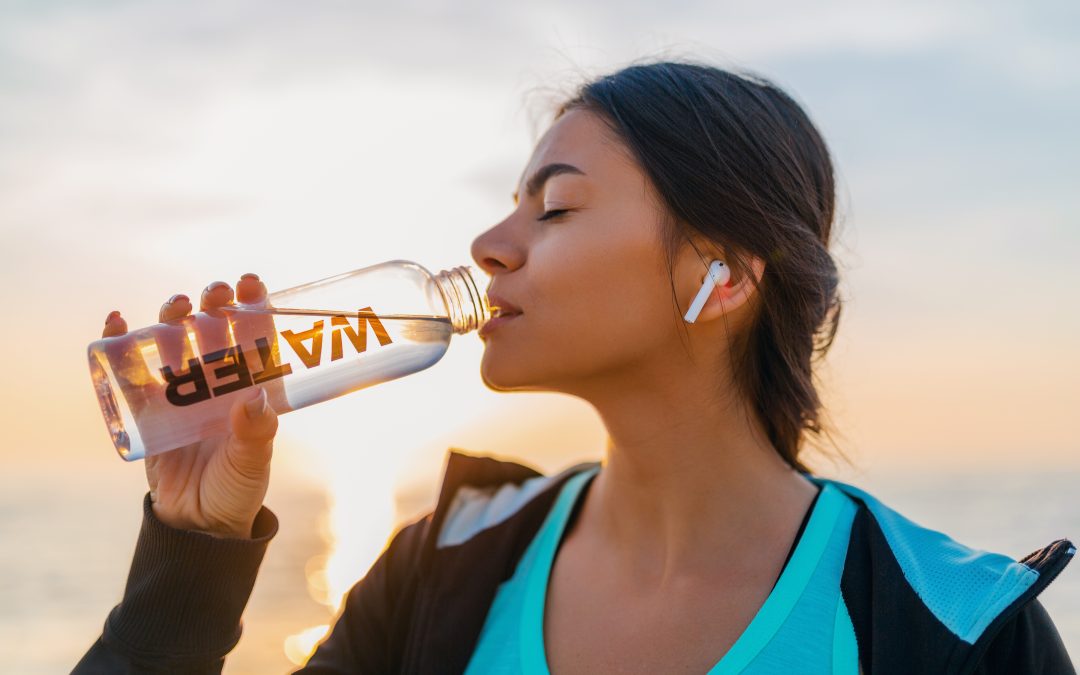Water is essential to survival; without it, we die within three days. However, many of us don’t drink enough water every day, which can be detrimental to our health and overall well-being. Fortunately, it’s not too difficult to ensure you get enough water in your daily routine—even if you don’t like the taste of water or you find yourself feeling too busy to stop and get a glass throughout the day. Check out this blog on the importance of water and how to make sure you’re getting enough of it every day!
The importance of drinking enough water
In most cases, drinking water is the only healthful thing you need to do for your body. It’s as important as eating healthy and working out because your cells need it to grow. Your heart needs it to pump blood, and your brain needs it to send messages throughout your body. When you’re dehydrated from not drinking enough water, you can get sick easier, especially if the sun is shining (which happens a lot around here).
That’s why it’s so important for you – or someone who loves you –to take care of that by making sure that you drink enough water every day. Start with two glasses of water when you wake up, and keep drinking one glass at each meal. Remember to refill your cup too! And don’t forget to drink water when you feel like you might be getting sick. A good rule of thumb is to stop drinking fluids altogether until it feels better, then start back up again slowly. Sometimes just sitting down and taking five minutes can help, but if the headache doesn’t go away after 10 minutes then please call your doctor right away. They’ll know what’s best for you.
How much should you drink?
Drinking plenty of water is essential for your body’s health and well-being. We can’t do anything without water. It transports nutrients and oxygen, regulates body temperature, and keeps the digestive system running smoothly. But how much should you drink? A good rule of thumb is to drink one ounce per pound of body weight in pounds. That means if you weigh 150 pounds, you should be drinking 75 ounces a day (12 cups) from all sources. The good news is that there are so many ways to stay hydrated:
-Use iced coffee or tea as a thirst quencher
-Add fresh lemon or lime slices for flavor and additional hydration benefits
-Sip on sparkling water with a squeeze of citrus fruit juice or slice of cucumber to add some flavor
-Avoid sugary drinks like soda, sweetened iced teas and fruit juices, sports drinks, and energy drinks because they are full of empty calories which provide little to no nutritional value
How much liquid is in other foods and drinks?
The average person should drink about 3 liters of liquid per day. Think about how much liquid is in other foods and drinks, and you’ll start to understand how much water it takes. Soda is full of sugar which means it has no nutritional value, making the calories void- they are void of any nutrition or hydration that you need.
Energy drinks, like Monster or Red Bull, have caffeine which will dehydrate your body even more by raising your blood pressure. Alcohol also can make you thirstier because the liver releases more salt and water when alcohol metabolizes (more on this below). What’s worse is that these quenchers contain preservatives that are detrimental to your health in the long run.
Carbonated sodas might be tasty, but if you want something with less sugar, try a glass of seltzer with lemon juice. Some people believe that wine and beer are healthier than sugary sodas and high-calorie energy drinks but remember there are still carbohydrates in alcohol so drinking too much will affect your weight loss goals. For example:
Hitting up happy hour after work?
How much fluid do you need each day?
It’s a common misconception that everyone needs the same amount of water each day. How much fluid you need depends on your size, your level of activity, and the climate where you live. When it comes to drinks like coffee or tea that contain caffeine, it’s important to know that drinking them can cause you to need more fluids per day since caffeine is a diuretic and causes you to lose fluids by making you urinate more often.
On average, men need about 15 cups of fluids a day, while women need around 11 cups. Very active people may need as many as 30 cups a day. The best way to figure out exactly how much you need is to check with your doctor or do some research online. Here are some helpful guidelines for figuring out how much you should drink each day:
The Mayo Clinic suggests drinking six 8-ounce glasses of fluid a day.
The Institute of Medicine recommends at least 91 ounces (about 10 cups) for adult males and 75 ounces (8 cups) for adult females.
Drinking extra fluids during exercise also helps keep your body cool during hot weather. If you don’t drink enough liquids, heat exhaustion or heat stroke could happen when your body doesn’t have enough water to produce sweat efficiently.
What are the signs of dehydration?
According to Mayo Clinic, signs of dehydration can include dry mouth and tongue, decreased urination, a smaller than normal urine volume, and sunken eyes. In children, signs of dehydration may also include less frequent urination or wetting their clothes. While it’s not as common in adults, some people might experience constipation when they are dehydrated because there is not enough fluid in the colon to stimulate regular bowel movements.
Other symptoms of dehydration include dizziness, headache, and tiredness. A dehydrated person will be at risk for heat stroke, muscle cramps, and fainting. Dehydration can be especially dangerous for infants and elderly people who have already decreased thirst responses. In these cases, someone should contact emergency services if the person displays any signs of dehydration mentioned above.
To prevent dehydration, experts recommend drinking six to eight glasses of water per day. It is important to remember that liquids like fruit juice, soda, and tea do not count towards this total amount. Experts recommend drinking more water on hot days, during exercise, or when sick with vomiting or diarrhea.
Signs that your body may need more than what you drink.
-You find it difficult to pass urine. -You have a constant urge to go. -There is a significant drop in the frequency of urination. -Your urine looks dark yellow or dark brown, which may indicate dehydration. -Your mouth feels dry and you have trouble breathing during sleep while exercising, or while working outside in the heat. -You experience dizziness and fatigue. -It’s hard for you to focus on tasks because your head feels cloudy. -You’re always thirsty and are unable to get enough water from just food and drinks.
-If you’ve been consuming alcohol excessively, then even if you’re drinking enough water, this could still be causing dehydration as alcohol causes fluid loss in the body due to increased urination. -The signs of dehydration can sometimes take weeks to show up, so make sure you don’t ignore them! Drinking lots of fluids will help keep these symptoms at bay. If you’re experiencing any of these symptoms, contact your doctor immediately.
Myths about why we don’t drink enough.
Myth #1
Water causes you to bloat. If you are drinking enough water, it won’t happen. The solution is that when you eat more salt and take more salt pills your body will retain more water. Check with your doctor before taking extra salt or potassium supplements.
Myth #2
Certain things cause water retention like medication, thyroid problems, metabolic disease, or congestive heart failure. Keep track of when your symptoms occur and see if there’s a correlation between your symptoms and the days that you drink most fluids.
Myth #3
Drinking water leads to dehydration. Reality: It is possible for healthy people who exercise vigorously to not drink enough during their workout, but this doesn’t lead to dehydration because their sweat contains so much fluid.
Myth #4
Drinking too much water can be dangerous. Reality: While overhydration can happen if someone drinks too much over time, the kidneys can only absorb so much fluid at one time and will expel what they don’t need immediately.

